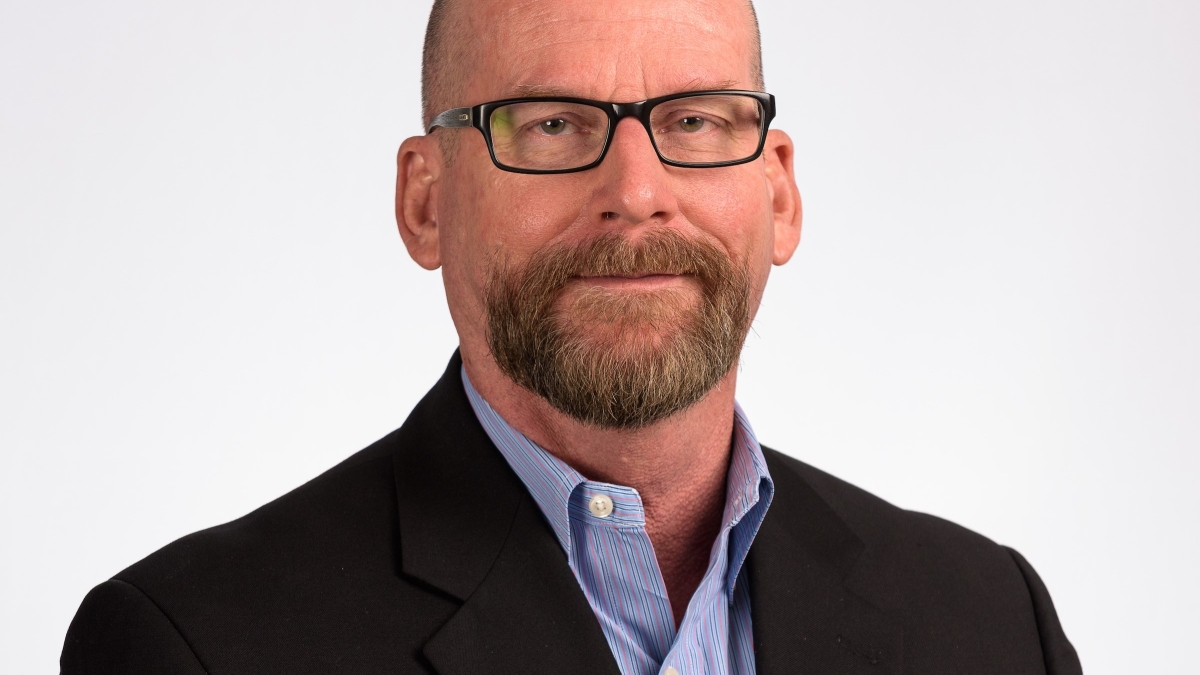Championing the need for research, programs and support for caregivers has been a passion of David Coon’s for more than three decades.
Recently, those efforts were honored in an especially meaningful way by the Arizona Caregiver Coalition.
On March 21, the Arizona State University Edson College of Nursing and Health Innovation associate dean of research and professor was presented with the David Besst Award at the Arizona Capitol.
“It means the world to me because this award is of the people, and it's in memory of a close colleague and friend who shared the same fight: to help us find better ways forward for family caregivers particularly through the development of evidence-based programs,” said Coon.
The Arizona Caregiver Coalition is a nonprofit that supports and advocates for family caregivers across the state to improve their quality of life. According to their criteria, this award is given to an individual who has “made significant contributions in family caregiving.”
It not only honors the awardees but as the name suggests, it also honors Besst — who was a caregiver himself — for his untiring work to establish resources and respite for family caregivers.
“I want to dedicate this award back to all the family caregivers, the coalition and my sister and brother because they are doing the lion’s share of caregiving in my own family.”
— David Coon, Edson College associate dean of research and professor
Executive Director of the Coalition Jutta Ulrich says the award was created two years ago after Besst’s passing. Given their aligned goals and close relationship, Ulrich says she was ecstatic to learn Coon was selected as the 2019 recipient.
“David and David, they became really fast friends and it was a good match because they supported each other. David Coon with his academic background and David Besst from the state’s side, they were a good match to get important things done,” she said.
Many of those accomplishments were read aloud during the award presentation. The list was long, and it featured two programs in particular that have had an especially positive effect on improving the lives of family caregivers.
One was CarePRO, a group-based and coach-call intervention that teaches caregivers of people with Alzheimer’s and related dementias self-care skills and strategies to reduce their stressors and related distress while enhancing positive coping and emotional well-being.
Another was EPIC, which involves both the people in the early stage of dementia and their care partners with a focus on hearing the voice of the person living with the disease to learn skills and map out a care plan together.
During his acceptance speech, Coon was quick to redirect the spotlight, offering that he did not and could not have gotten here on his own.
“It always takes you back a little bit hearing a list of accolades like that because what’s not represented are all the people that are there with you as you move programs forward, including all the family caregivers and older adults with chronic illnesses that served as participants in our research projects to help us build the interventions and evaluate them. Also, there’s all the staff and co-investigators that have been with me on that journey. So it's a little overwhelming to hear,” Coon said.
“I want to dedicate this award back to all the family caregivers, the coalition and my sister and brother because they are doing the lion’s share of caregiving in my own family,” Coon added.
Like the award’s namesake and his good friend, Coon was drawn to this field through personal experience. That exposure helped inform what has since become his life’s work, and if you ask him, he’ll tell you there’s still a lot to do.
“We need to make sure that programs and services that we know work are available, but it's not just about making them available, it's making them accessible and it's making sure that they are acceptable,” he said.
More Health and medicine

College of Health Solutions launches first-of-its-kind diagnostics industry partnership to train the workforce of tomorrow
From 2007 to 2022, cytotechnology certification examinees diminished from 246 to 109 per year. With only 19 programs in the…

ASU's Roybal Center aims to give older adults experiencing cognitive decline more independence
For older people living alone and suffering from cognitive decline, life can be an unsettling and sometimes scary experience.…

Dynamic data duo advances health research
The latest health research promises futuristic treatments, from cancer vaccines to bioengineered organs for transplants…


